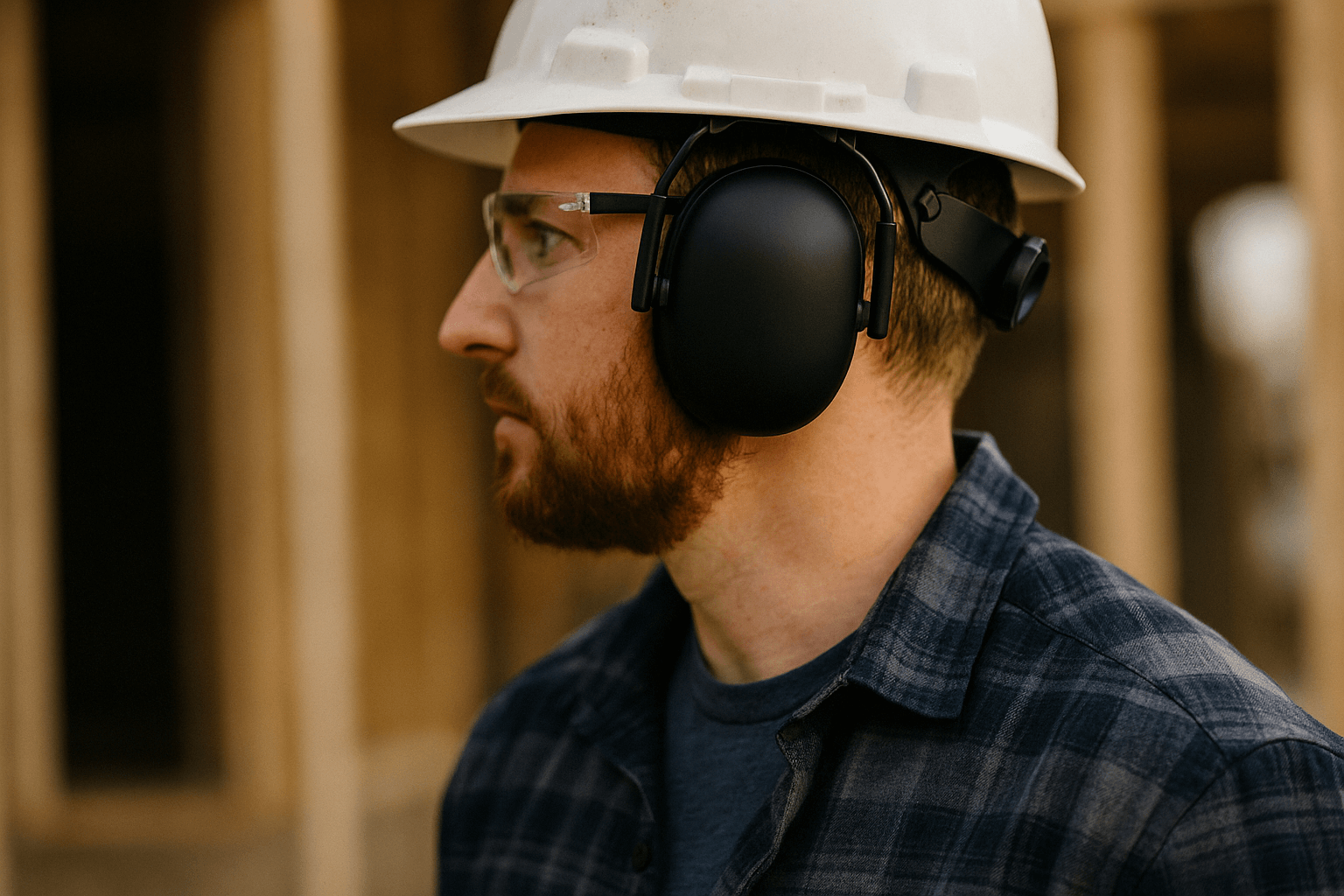
Noise is an unavoidable part of modern life, but not all sounds are harmless. According to the U.S. Centers for Disease Control and Prevention (CDC), prolonged exposure to noise above 70 decibels (dB) can begin to damage hearing. Sounds reaching 85 dB—such as city traffic or a loud vacuum—can harm hearing after just two hours of exposure. At 100 dB, such as during a concert or near heavy machinery, hearing damage can occur in under 15 minutes without protection. That’s why effective hearing protection is essential for both safety and comfort.
So, who really needs earmuffs? While the answer might initially point to construction sites or shooting ranges, the reality is much broader. In this article, we explore three primary groups who benefit significantly from earmuffs: professionals, hobbyists, and individuals with heightened sound sensitivity.
Professionals in High-Noise Environments
Many occupations regularly expose workers to hazardous sound levels. For instance, construction workers, airport ground crews, and manufacturing employees often operate in environments exceeding 90 dB. Without hearing protection, long-term exposure in these settings can lead to irreversible hearing loss or tinnitus.
Earmuffs designed for industrial use provide a Noise Reduction Rating (NRR) sufficient to block harmful frequencies while maintaining awareness of surrounding alerts. Features such as cushioned ear seals and adjustable headbands ensure they can be worn comfortably during extended shifts.

Hobbyists Engaged in Loud Recreational Activities
Recreational noise can be just as damaging as occupational exposure. Shooting enthusiasts, motorcyclists, concert-goers, and even home improvement DIYers frequently encounter noise levels well over 100 dB. Earmuffs offer a lightweight, portable solution for hearing protection during these activities.
Unlike earplugs, which may be uncomfortable or difficult to insert correctly, earmuffs provide full-ear coverage and are easier to use repeatedly. ProCase’s line of noise-cancelling earmuffs is particularly popular among hobbyists seeking reliable protection without sacrificing mobility.
Individuals with Sensory Sensitivities
An often-overlooked group that can greatly benefit from earmuffs includes individuals on the autism spectrum and those with sensory processing disorders. These individuals may experience everyday ambient sounds—such as sirens, appliances, or crowded places—as overwhelming or even painful.
Earmuffs serve not only as hearing protection but also as sensory regulation tools, helping to reduce anxiety and improve daily functioning. For children and adults alike, earmuffs provide a sense of control in unpredictable environments. Unlike white noise machines or noise-cancelling headphones, passive earmuffs offer consistent, reliable relief without the need for batteries or connectivity.
This group also includes people who suffer from misophonia or hyperacusis, where specific sounds can trigger distress or discomfort. For them, earmuffs are not just protective but essential for day-to-day well-being.

Why Quality and Fit Matter
Not all earmuffs offer the same level of hearing protection. High-quality materials, proper ear seal design, and adjustable fit all contribute to performance. ProCase earmuffs are engineered with multi-layer acoustic foam and durable shells to maximize sound isolation while maintaining breathability and comfort.
Whether you're operating machinery or simply trying to focus in a noisy household, the right earmuffs make a measurable difference.
Conclusion
Earmuffs are no longer niche tools for niche jobs. They are essential equipment for professionals, protective gear for hobbyists, and life-enhancing aids for people with sensory needs. If you're exposed to disruptive noise on a regular basis, it's time to invest in effective hearing protection—for your ears, your focus, and your peace of mind.

Comments (0)
Back to Review & Story